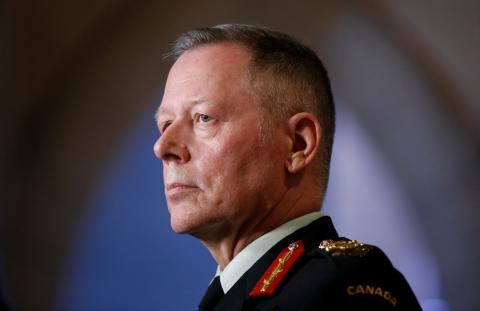Advertisement
Canada to send helicopters, troops to aid U.N.'s Mali mission
OTTAWA (Reuters) - Canada will send six helicopters and 250 support troops to join a United Nations peacekeeping mission in Mali this year, officials said on Monday, ending two years of deliberations that had upset allies.
Defense Minister Harjit Sajjan told reporters that Canada would deploy two Chinook transport helicopters and four Griffon attack helicopters to provide armed escort and protection in the fight against Islamist militants in Mali.
Canadian government sources, who requested anonymity because of the sensitivity of the situation, said the force would be deployed for 12 months.
The United Nations says 155 people deployed in Mali have been killed since 2013, making it the world's deadliest peacekeeping operation.
"We are aware of the complexities and the difficulties of the situation in Mali. ... We have been very thoughtful, very prudent in our decision to undertake that mission," Foreign Minister Chrystia Freeland told reporters.
Earlier this month, four U.N. peacekeepers were killed by a roadside bomb in central Mali.
The announcement is less ambitious than the Liberal government of Prime Minister Justin Trudeau had initially planned. Shortly after coming to power in late 2015, Ottawa had indicated it would send up to 600 troops to Mali.
Ministers later put the plans on hold amid fears of casualties, angering allies who said they felt let down, and prompting some to speculate the delay could hurt Canada's bid for a nonpermanent seat at the U.N. Security Council.
Diplomats, though, welcomed Monday's announcement, saying it would help the mission continue without interruption.
"It is good – no doubt about that," said one senior diplomatic source who declined to be named.
James Bezan, defense spokesman for the official opposition Conservative Party, accused the Liberals of sending troops to a highly dangerous country for partisan promises.
"This is about Justin Trudeau's selfish political ambition to win a seat on the U.N. Security Council, and he is using our troops as political pawns," Bezan told reporters.
Canada is running for one of the council's 10 nonpermanent seats in an election that will take place in 2020.
(Additional reporting by Leah Schnurr; Editing by Phil Berlowitz and Jonathan Oatis)



















Add new comment